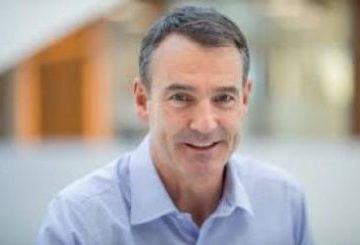Bernard Looney was appointed chief executive officer in February 2020. He was identified by the board as the right person to take BP forward as we look to achieve our purpose, ambition and aims. He previously ran BP’s Upstream business from April 2016 and has been a member of the company’s executive management team since November 2010.
As chief executive, Upstream, Bernard was responsible for all BP’s oil and gas exploration, development and production activities worldwide. The Upstream segment included some 17,000 people operating across almost 30 countries and produces around 2.6 million barrels equivalent of oil and gas a day.
As chief executive of BP Upstream, Bernard oversaw improvements in both process and personal safety performances and production grew by 20%. There were also significant improvements in both gender and global diversity. Bernard initiated a group-wide dialogue on mental health in hope of ‘ending the stigma’ associated with the issue.
He has led access into new countries, including Mauritania and Senegal, high-graded the portfolio with the acquisition of onshore US assets from BHP Billiton and the proposed sale of the Alaska business, and created innovative new business models such as Aker BP in Norway.
Bernard has encouraged BP to lead the industry on methane detection methods as well as driving sustainable emissions reductions of almost 3 million tonnes CO2 equivalent in the past two years.
During his time in Upstream, Bernard made significant improvements in both gender and global diversity, with his top regional leadership team now being one-third women and one-third from outside the US/UK. He has also initiated a company-wide dialogue on mental health in hope of ‘ending the stigma’ associated with the issue.
In earlier Upstream executive roles, he was responsible for all BP-operated oil and gas production worldwide and for all BP’s drilling and major project activity. He led the creation of central drilling and projects functions following the Deepwater Horizon accident.
Bernard joined BP in 1991 as a drilling engineer and worked in operational roles in the North Sea, Vietnam and the Gulf of Mexico, including as drilling engineer on the discovery of the giant Thunder Horse field. After a period in BP Alaska, he became head of the group chief executive's office, working directly for BP chief executives Lord Browne and then Tony Hayward.
An Irish citizen, Bernard grew up in County Kerry and in 1991 gained a degree in Electrical Engineering from University College Dublin. He later, in 2005, gained a MS in Management from Stanford Graduate School of Business.
Bernard is a fellow of the Royal Academy of Engineering, a fellow of the Energy Institute and is also a mentor in the FTSE 100 Cross-Company Mentoring Executive Programme.
Relevant skills and experience
Bernard has spent his career at BP and has demonstrated dynamic leadership and vision as he has progressed through various roles within the Company. As part of the appointment process to becoming the new chief executive officer, Bernard exceeded at range of aptitude and psychometric testing. During his ten years as the leader of Upstream, Bernard saw the segment through one of the most difficult periods in BP's history, helping transform the company into a safer, stronger and more resilient business. He was instrumental in a number of workforce based initiatives to promote a diverse and inclusive environment.
BP plc,[5][6] sometimes referred to by its former name British Petroleum, is a British multinational oil and gas company headquartered in London, England. It is the sixth-largest energy company by market capitalization,[7] the fifth-largest company in the world measured by 2012 revenues, and the sixth-largest oil and gas company measured by 2012 production.[8][9] It is one of the six oil and gas "supermajors".[10] BP isvertically integrated and operates in all areas of the oil and gas industry, including exploration and production, refining, distribution and marketing, petrochemicals, power generation and trading. It also has renewable energy activities in biofuels and wind power.




